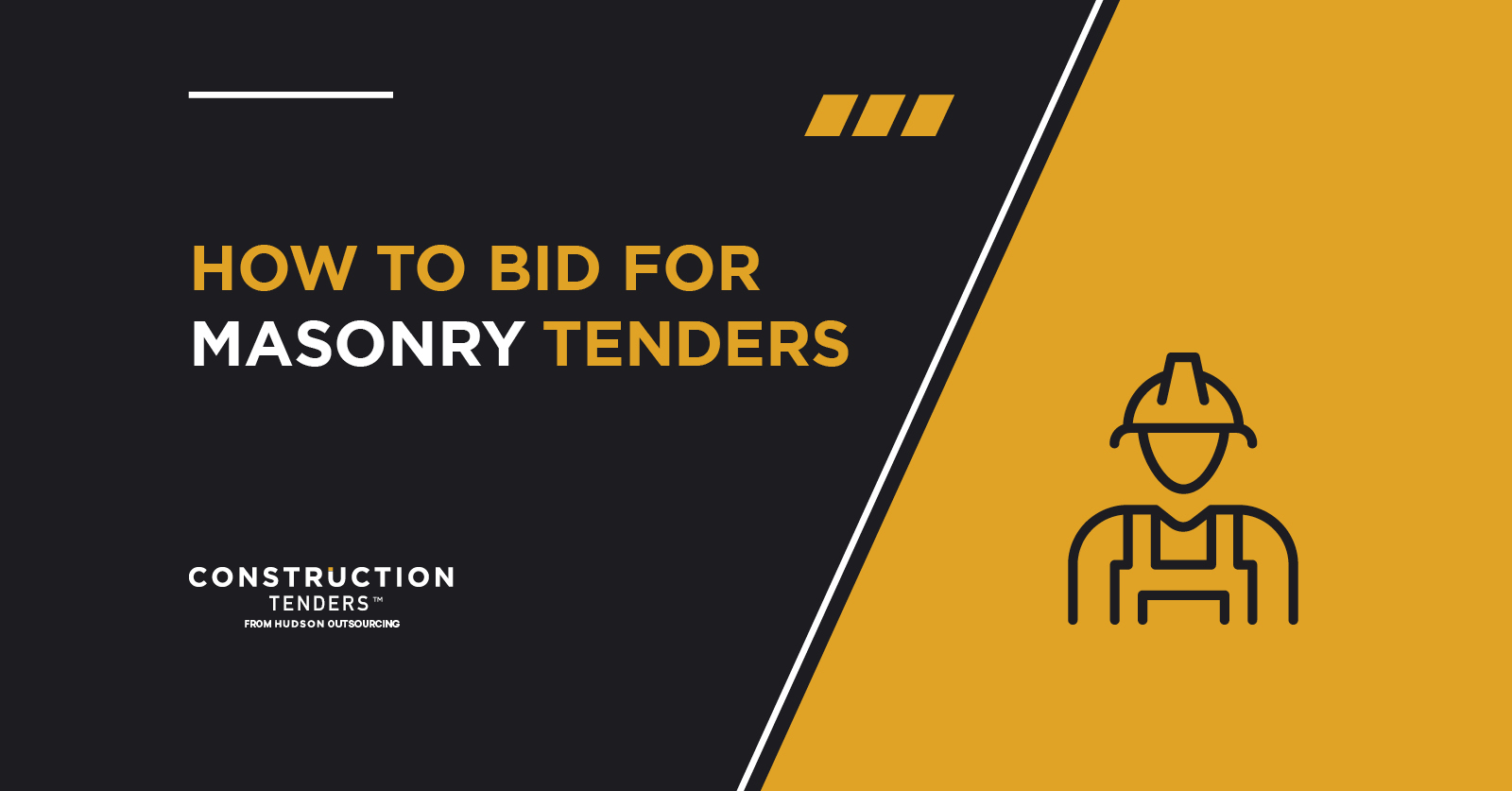How to Choose the Best Construction Bid Site for Your Business
Using the best construction bid sites is a vital step in finding relevant tenders and growing your business.
You might be wondering, what is tendering? And why is it important to the construction sector? You’re not alone – many construction businesses miss out on construction leads simply by not utilising the tendering process. In short, tendering is the most common way in which a buyer finds the most appropriate supplier for goods or services. Including tendering in your business strategy allows you to secure contracts from buyers you may never have connected with otherwise. This is invaluable when it comes to growing your business sustainably.
If you’re new to tendering, finding the best construction bid site can seem like a daunting task. What exactly should you be looking out for, anyway? When you search ‘best construction bid sites’ in Google, the results can be overwhelming. Plenty of sites will provide you with reams of opportunities from countless buyers. Job done! Right? Not quite.
You’ll often find yourself wading through tenders with requirements that don’t suit your business in the slightest. Finding a construction bid site with tenders that are specific to your business can become a stressful and fruitless process. Unless you know exactly where to look!
What to Look for In Construction Bid Sites?
What should you be looking out for to find the best construction bid site for your business? We’ve created a quick and comprehensive guide so you can rest assured that you’re looking in the right place:
Here are the top 7 things you should look for to find the best construction bid site and secure relevant contracts:
-
The portal doesn’t rely on CPVs.
There’s a fundamental problem with the way most construction bid sites source tenders for businesses – CPV codes.
CPV stands for Common Procurement Vocabulary. A CPV code is an 8-digit code which allows buyers to classify what they are procuring in a succinct way. In theory, suppliers should be able to use CPV codes to source perfect business opportunities quickly and effectively.
Sound too easy to you? You’re right. In practice, this doesn’t happen.
Studies show that close to 30% of CPV codes are tagged inaccurately. It’s easy to make a mistake when tagging a tender with a complex 8-digit code. Many buyers also don’t understand the requirements of CPV codes and so they use them incorrectly, or not at all.
So, what does this mean for your business? Well, this is particularly harmful in a sector as varied as construction with such a broad range of sub-sectors. On most construction bid sites, clients are not finding all of the tenders that are relevant to their specific services. Even if you’re searching via relevant CPV codes, you’re missing out on countless contracts that could grow your business.
For example, imagine an Architecture firm registers to a portal that tracks tenders via CPV codes. To use the portal effectively, the firm would need someone in their team with a comprehensive understanding of CPV codes. Even then, up to 30% of the results they come across could be tagged incorrectly. They could end up trawling through tenders for contracts such as the supply of bedding plants or website development services. Obviously, these tenders would be completely irrelevant to the Architecture firm’s services. This ultimately defeats the purpose of a tracking portal which should save you time when sourcing new business opportunities.
-
The portal uses manual tracking.
The best way around the shortfalls of CPV codes? Manual keyword tracking.
At Construction Tenders, we don’t rely on CPV codes to source tenders for our clients. Instead, our dedicated team of Opportunity Trackers manually search thousands of sources every day. They read the requirements of every buyer and manually tag each tender with the correct industry-driven keywords. This avoids the problem of sub-sectors being mislabelled with the wrong CPV code. It also eliminates the need for someone in your firm to comprehensively understand CPV codes. We handle all of that for you.
When you sign up to Construction Tenders, you can simply enter the keywords that best describe your services. Search these keywords and you’ll be able to access relevant opportunities instantly. It’s that easy. Every tender you see on our portal is manually tracked, and therefore relevant to the services you offer. No exceptions.
Ultimately, our manual tracking saves you countless hours of searching through irrelevant tenders and gives you instant results.
-
The system focuses on your industry.
Most bid sites source tenders for all industries so there’s always a high chance of seeing irrelevant opportunities. You could find plenty of tenders for video production, but this is no good if you’re a roofer.
With Construction Tenders, every opportunity is sector-specific. Our focused approach is the most effective way to provide you with relevant tenders.
Our Opportunity Trackers source specific opportunities for a range sub-sectors, including:
- Refurbishment
- Building Works
- Civil Engineering
- Surveying
- Demolition
- Masonry, and many more.
-
It allows for remote working in teams.
Remote working has changed the way businesses operate in a lot of ways. Tendering remotely is a lot easier when you have access to a portal which allows you to work in teams.
We’ve designed our tendering portal specifically to make remote working easier. Our portal allows you to give multiple colleagues access to your business account. Each colleague can then assign tasks and add tenders to their favourites page.
-
You’re supported by an account manager.
If your business is new to tendering, we understand that you might need some extra support. With the right support, scouring the web for the best construction bids becomes a much less daunting task.
Via access to an account manager, you will always have on-hand advice and guidance to help you find relevant opportunities. You might waste time applying for a tender that isn’t right for you or that you’re unable to carry out. You might miss opportunities that are perfect for your business by questioning your ability to win a bid. This can all form a stressful process.
But it doesn’t have to be.
With our Construction Tenders portal, you will be assigned a dedicated account manager throughout your subscription. It’s their job to answer any questions you might have, regarding tendering, while using the portal.
An account manager will support you in a range of ways;
- Maximising the way you use our tendering portal;
- Advice around tendering and procurement;
- Connecting you to other Hudson support services;
- Queries around a bid that you require support with;
- Alerting you when exclusive opportunities are published that are perfect for your business, and;
- Ensuring you receive an email alert when new, relevant tenders, are uploaded.
Clients can always contact their dedicated account manager by phone or email, at any time throughout their subscription. This means you’ll always have a solid understanding of where you stand throughout the tendering process.
-
You have access to virtual learning.
Great! You’ve found the best construction bid site and, consequently, the perfect contract to bolster your business. You now see that the buyer has asked for a technical and in-depth response. Bids can sometimes require over 10,000 word responses with stringent requirements. Even if you have time to do this – which, let’s be honest, who does? – can you show why you’re irrefutably the best business for the job? Do you know how to write a winning bid?
If not, don’t worry. We’ve created Tender VLE specifically to eliminate the confusion around tendering and procurement. Tender VLE is a free service which gives your business expert advice on the ins and outs of tendering. Through video masterclasses, fact sheets, blogs and templates, you’ll learn how to create a winning tender and secure the best contracts.
-
You can outsource bid writing if needed.
Some people just aren’t natural-born writers. A good bid writer can transform the way buyers view your business – and give you exponential results.
We have developed Hudson Succeed, our bid writing division, to carry our clients through the bidding process every step of the way. Our team are exceptional Bid Writers who assist businesses in multiple sectors to write compelling and technical narratives. With the help of Hudson Succeed, countless construction sector companies have grown their businesses effectively. The team holds an 87% bid success rate and are trusted by over 700 businesses, globally.
How do I get started?
If you’re looking to secure construction contracts UK, Construction Tenders can save you countless time and money that you’d spend manually searching. You’ll instead gain new business opportunities that are specifically relevant to you. Unlike other construction bid sites, we’ve humanised tendering at every level – from manual tracking to account management. This high level of attention to detail secures the best results for your business.
You will receive daily alerts when tenders are released for services in your sector as well as 24-hour access to our Construction Tenders portal. Book a free live demo of the portal today and see how the portal can help your business grow with construction leads. You’ll see all of the current opportunities available and understand how the system will work for your business.
Below are previous construction bids sourced on our portal:
Fender Pile Replacement Works
Fenland District Council- Eastern- Budget: £90,000
Dunnikier Business Units, Kirkcaldy – Steelworks, Roof and Wall Cladding Works Package
Fife Council- Scotland- Budget: Undisclosed
Communal Floor Replacement
Southend-on-Sea Borough Council- Eastern- Budget: Undisclosed
Asbestos Removal Services
Yorkshire and Humber Police Procurement (Y&HPP)- Yorkshire and Humber- Budget: £1,500,000
Roofing Repairs (Framework)
Nottingham City Council- East Midlands- Budget: Undisclosed
We source tenders for services including:
- Architectural Tenders
- Refurbishment Tenders
- Brickwork Tenders
- Building Works
- Health & Safety Tenders
- Small Construction Tenders
- Civil Engineering Tenders
- Electrical Tenders
- Surveying Tenders
- Demolition Tenders
- Flooring Tenders
- Glass Tenders
- M&E
- Cost Consultancy
- Painting Contracts
- Decorating Tenders
- Masonry and many more.

